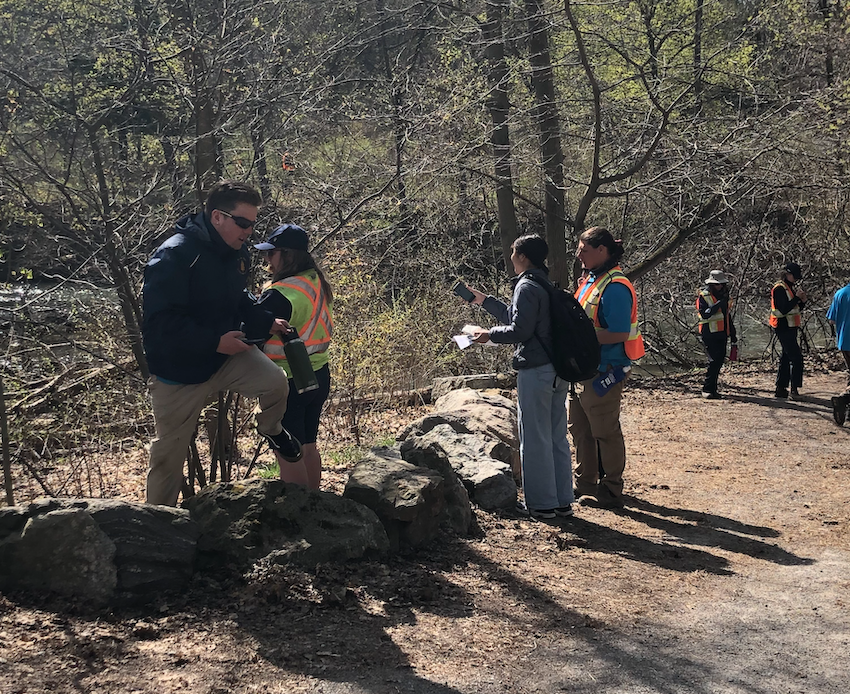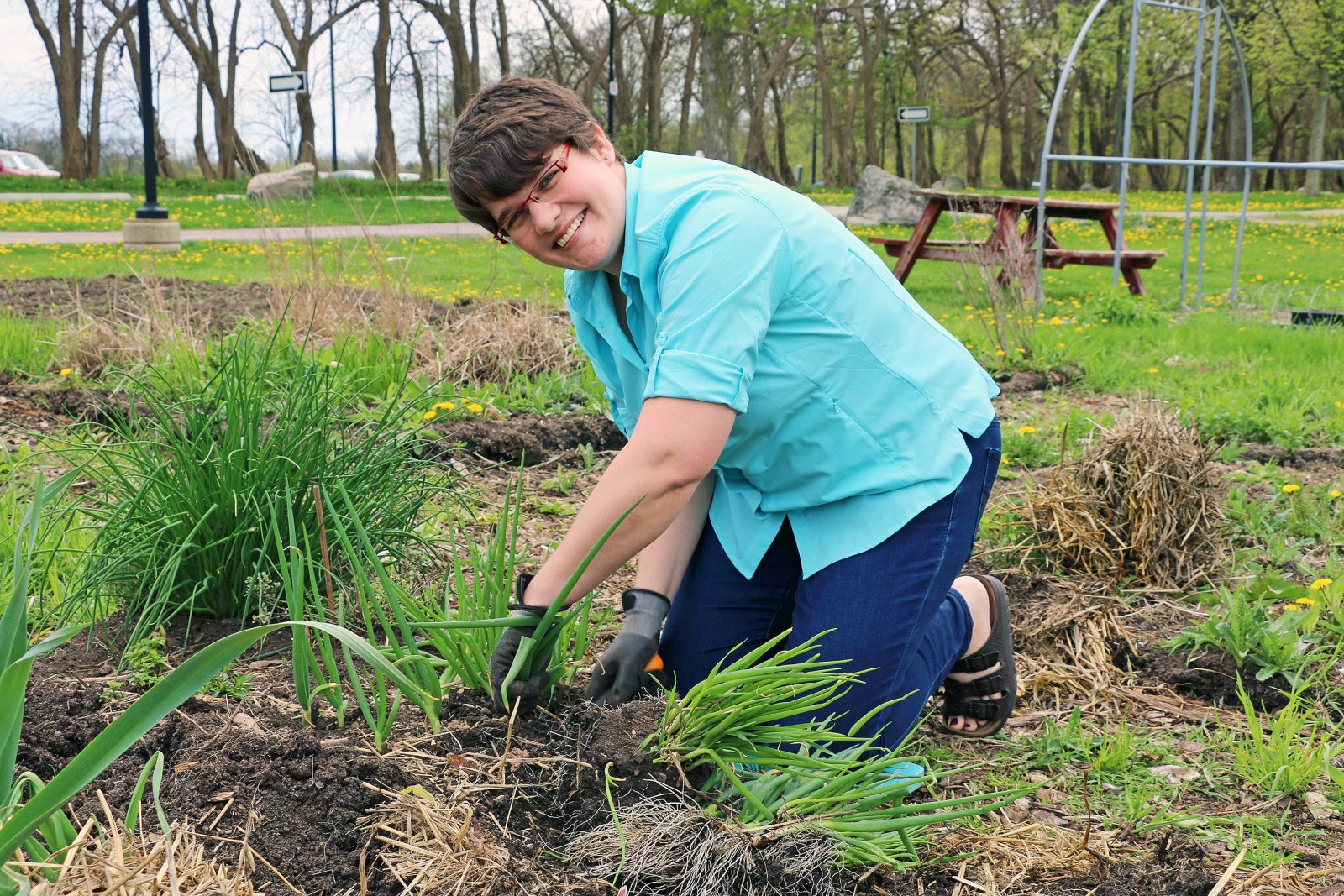By: Brenna Mervyn*
About the Program
The WWF Living Planet Leader program (LPL) has provided an opportunity for students at Brock to complete a certificate in sustainability while completing their degree. LPL is a professionally recognized certification with four main pillars: volunteerism, sustainability in academics, personal sustainability, and leadership. Any student at Brock is eligible to complete this certification, regardless of program or faculty. The following post will be focused on the volunteerism pillar, and how Brock students can complete their 40 hours of volunteer work remotely or in the Niagara Region in relation to sustainability or conservation.
Why Volunteering is Important to Sustainability
Volunteering and community involvement are key factors in sustainability and conservation. Many organizations working in stewardship or conservation are underfunded. Therefore, volunteerism helps keep parks and events possible for everyone to enjoy. Conservation areas and provincial parks require volunteers to keep areas safe and clean for public use. Volunteers are also key to running community events. Community events aid immensely in spreading awareness of sustainability issues and how to create change in our everyday lives. Volunteerism is also a tool to foster a sense of pride and care for the community we live in. This also amplifies the drive to change the community for the better. Education is also a huge benefit of volunteerism. Many programs for children are volunteer-run, and therefore volunteers play a large role in educating the next generation on issues of sustainability.
Portals for Volunteer Opportunities
There are various job boards and volunteer sites that compile open volunteer opportunities. These portals are excellent tools when searching for volunteer positions. Keywords such as sustainability, conservation, environment, or climate change can help narrow down results and find a position that is right for you while filling the LPL requirements. Some useful sites are listed below.
Organizations and Opportunities
1. Organize a litter cleanup!
The Earth Day Great Global Cleanup is an excellent resource to register litter pickups globally. Their website outlines how to kickstart a cleanup whether it be a private or public event. Organizing a litter pickup is an excellent way to engage with the community while practicing environmental volunteerism and leadership. There is no minimum group size, so whether it be a group of 5 or a group of 50, organizing a litter pickup is a great way to get volunteer hours while enhancing local biodiversity.
2. Volunteering with Niagara Parks

Niagara Parks works to preserve and educate the public on the natural and cultural heritage of the Niagara River Corridor. The Niagara River Corridor is a key to biodiversity in the Niagara Region and is home to hundreds of species of flora and fauna for which Niagara is known for. The Niagara Parks Commission is responsible for the Niagara Glen Naturalization Site and the Dufferin Islands, which are huge tourist destinations (especially during bird migration seasons). Conserving these areas under high stress from tourism requires work from volunteers to manage the sites and educate the community and tourists of their importance. This means that Niagara Parks offers various opportunities to get involved through special events, tree planting, or site management. Their site has a list of many volunteer opportunities, and they even offer a volunteer appreciation program for continued participation!
3. Volunteer with the Niagara Peninsula Conservation Authority

The NPCA is a resource management agency working on local watershed preservation and conservation. Volunteer opportunities can be found based in various fields. Whether you’re interested in working with children, site maintenance, conservation, or volunteering for special events, there are many opportunities to find the right fit for you. The NPCA is also running the Balls Falls Nature School beginning this September, which is an excellent opportunity to work with and educate children on conservation and sustainability.
4. Organize or participate in a BioBlitz!
Now, you may be asking, what on Earth is a BioBlitz? A BioBlitz is a community event which creates a biological survey of an environment to log anthropogenic impacts, population density, invasive species, and biodiversity composition. A BioBlitz encourages citizen scientists, community members, and students to participate using surveying apps such as iNaturalist to make identification quick, easy, and accurate. Last month, Brock partnered with the Niagara Parks Commission to hold the Dufferin Islands BioBlitz which was a huge success. Not only are events like a BioBlitz fun and beneficial to research, but they also involve the community and are a great way to increase interest in issues such as invasive species. iNaturalist is a great resource to find and organize a BioBlitz, as well as Sustainability at Brock who organized the Dufferin Islands BioBlitz.
There are many opportunities throughout the Niagara Region for volunteering in sustainability or stewardship. What is most important is finding which opportunity is the right fit for you and your goals. When searching for volunteer positions it is useful to check recruitment sites often, so you don’t miss out on any opportunities. After completing your volunteer hours, don’t forget to upload proof of completion to your Living Planet Leader profile to fulfill the volunteerism requirement!
*This blog post was written as part of an assignment for ENSU 3P91: Leadership in Environmental Sustainability Internship Course. If you are interested in taking part in this course, please visit: https://brocku.ca/esrc/minor-in-sustainability/
















